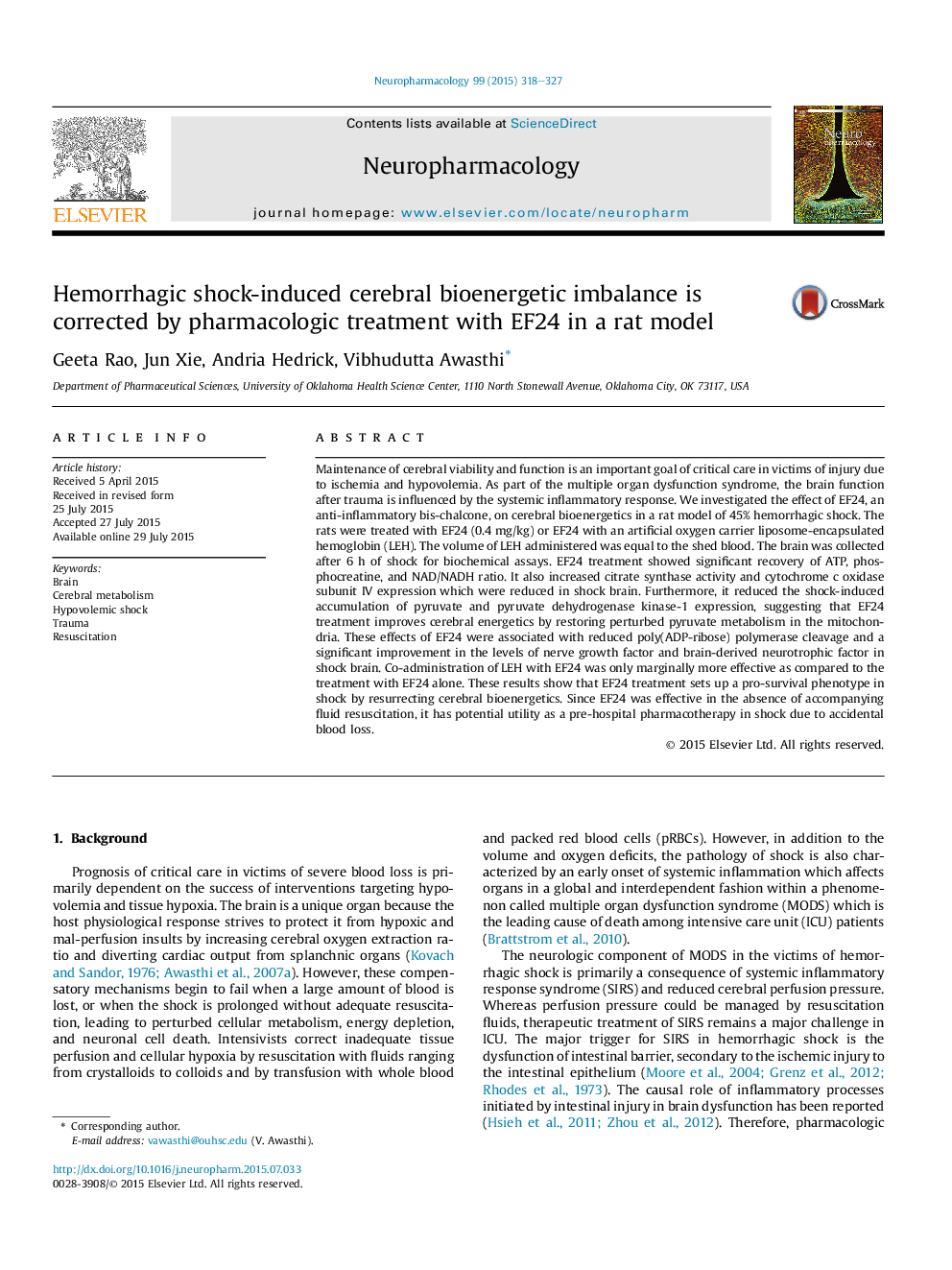| Article ID | Journal | Published Year | Pages | File Type |
|---|---|---|---|---|
| 5813795 | Neuropharmacology | 2015 | 10 Pages |
Abstract
Maintenance of cerebral viability and function is an important goal of critical care in victims of injury due to ischemia and hypovolemia. As part of the multiple organ dysfunction syndrome, the brain function after trauma is influenced by the systemic inflammatory response. We investigated the effect of EF24, an anti-inflammatory bis-chalcone, on cerebral bioenergetics in a rat model of 45% hemorrhagic shock. The rats were treated with EF24 (0.4Â mg/kg) or EF24 with an artificial oxygen carrier liposome-encapsulated hemoglobin (LEH). The volume of LEH administered was equal to the shed blood. The brain was collected after 6Â h of shock for biochemical assays. EF24 treatment showed significant recovery of ATP, phosphocreatine, and NAD/NADH ratio. It also increased citrate synthase activity and cytochrome c oxidase subunit IV expression which were reduced in shock brain. Furthermore, it reduced the shock-induced accumulation of pyruvate and pyruvate dehydrogenase kinase-1 expression, suggesting that EF24 treatment improves cerebral energetics by restoring perturbed pyruvate metabolism in the mitochondria. These effects of EF24 were associated with reduced poly(ADP-ribose) polymerase cleavage and a significant improvement in the levels of nerve growth factor and brain-derived neurotrophic factor in shock brain. Co-administration of LEH with EF24 was only marginally more effective as compared to the treatment with EF24 alone. These results show that EF24 treatment sets up a pro-survival phenotype in shock by resurrecting cerebral bioenergetics. Since EF24 was effective in the absence of accompanying fluid resuscitation, it has potential utility as a pre-hospital pharmacotherapy in shock due to accidental blood loss.
Related Topics
Life Sciences
Neuroscience
Behavioral Neuroscience
Authors
Geeta Rao, Jun Xie, Andria Hedrick, Vibhudutta Awasthi,
